WASHINGTON — In the last few months, artificial intelligence (AI) has garnered much attention, especially with the arrival of ChatGPT. The program, launched in late November, has amazed people with its ability to answer questions and write stories while mimicking natural speech.
In the progression of AI, many see ChatGPT as a big step. But as these new technologies increase, they are likely to raise questions. AI has long been a curiosity — and a fear — straight out of science fiction books and films, from the Hal 9000 to M3gan.
In more ways than one, though, ChatGPT seems to have changed the game, starting with how quickly it garnered an audience.
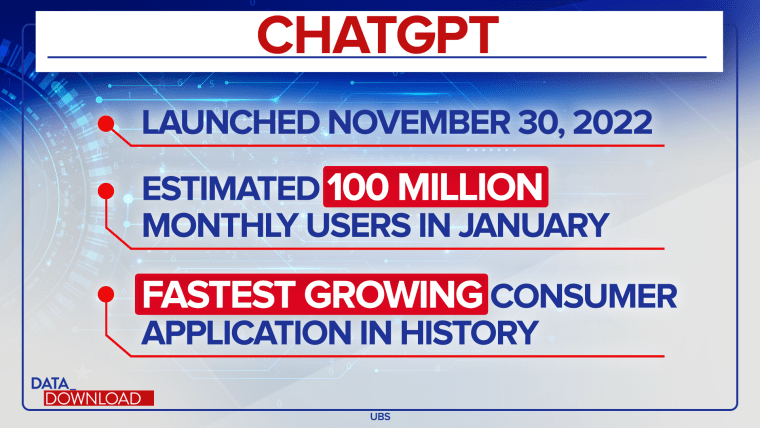 UBS
UBS
ChatGPT launched on November 30, 2022. By the end of January, it had more than 100 million monthly users, according to a report from UBS. That made it the fastest-growing consumer application in history. The next fastest application to reach the 100 million mark was TikTok, which took nine months to get there.
Instagram took 30 months to hit that mark, and Spotify took 55 months.
To be clear, AI is not as new or futuristic as many believe, and it’s already a big part of everyday tech life.
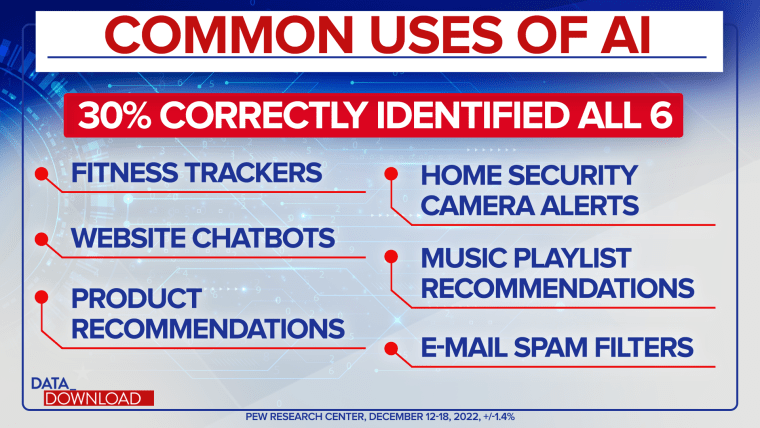 Pew Research Center
Pew Research Center
If you have a smartwatch or fitness tracker or have ever interacted with a chatbot online, which is common on retail and airline sites, you have interacted with AI. If you have ever taken music or product recommendations or a home security camera that sends a message when you have a visitor, you have experienced AI. Even the most basic online task, email, employs AI in the form of spam filters.
In December, a Pew Research Center survey found that only about 30% of adults knew AI was involved in all those tasks and technologies.
AI is only likely to become a greater part of daily life, and the coming investment in it looks truly remarkable.
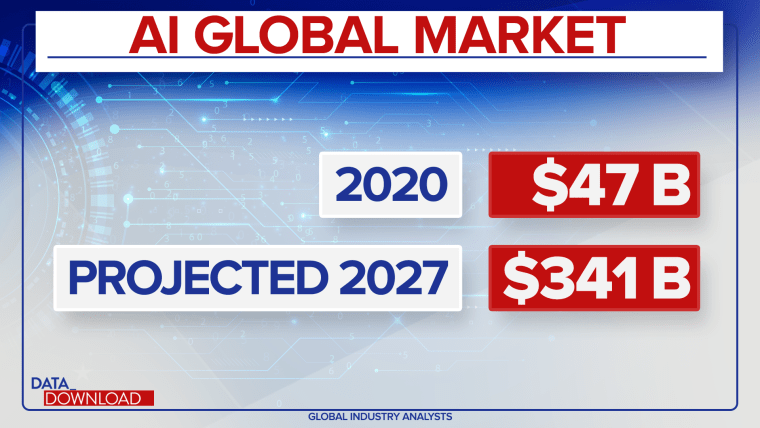 Global Industry Analysts
Global Industry Analysts
The global market for AI was about $47 billion in 2020, according to the research firm Global Industry Analysts. The estimated market for 2027 is more than $341 billion. That’s a projected growth of more than 600% in that period — which could mean a lot of new tech gadgetry and online AI experiences.
That kind of explosive growth is not likely to tamp down any concerns about the power of AI, and the data suggests there are concerns. The December Pew Research Center survey also asked people how they felt about the increased use of AI in daily life, and the verdict wasn’t especially positive.
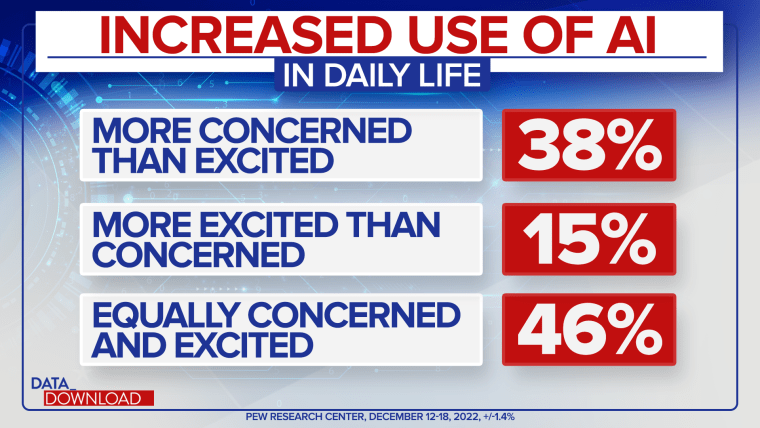 Pew Research Center
Pew Research Center
Nearly 4 in 10 Americans, 38%, said they were more concerned than excited about more AI in their daily lives. Another 46% said they were equally excited and concerned, and only 15% of those surveyed said they were more excited than concerned. Despite massive interest in ChatGPT, the American public does not appear to be especially excited about AI.
There are a few caveats in those numbers. This poll was conducted in December when ChatGPT was not even one month old. It’s something of a baseline for the current AI moment.
It could be that as people use the site, they grow more comfortable with it, and their concerns dissipate. Of course, the opposite could be true as well. They might see threats to their jobs and challenges for schools if they think ChatGPT can write a passable English essay — some teachers have already cited that concern. Or maybe they use the site and start thinking about Bladerunner.
Regardless, as awareness of AI grows, one thing seems all but certain: The combination of rapid growth and public concern will likely lead lawmakers to get involved, and in some states, they already have. The National Conference of State Legislatures reports that 18 states introduced legislation or resolutions around AI in 2022.
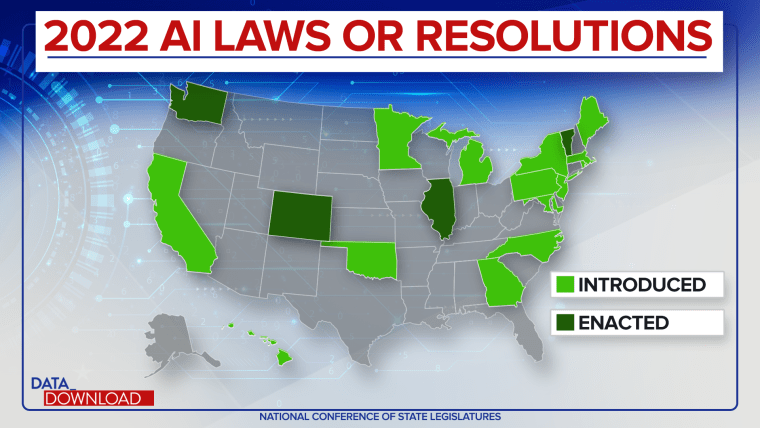 National Conference of State Legislatures
National Conference of State Legislatures
Four of those states, Colorado, Illinois, Vermont and Washington, passed or implemented legislation or rules concerning AI. Colorado, Illinois and Vermont created commissions to study AI. Illinois also amended its Artificial Intelligence Video Interview Act, passed just one year earlier. Washington passed legislation funding its Automated Decision-Making Systems Workgroup.
It’s not exactly earth-shaking regulation, at least not yet, but it is a door into the issue. All the numbers here suggest there will be more on the way. The story of AI in the United States and the world at large is only beginning. As its power and influence grow, it is hard to see how the desire to set some rules and parameters around it won’t grow as well.


